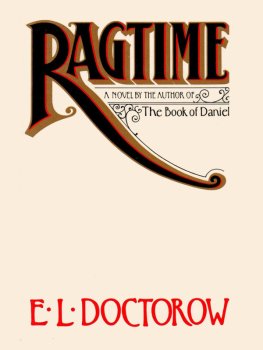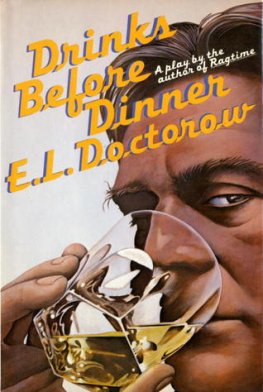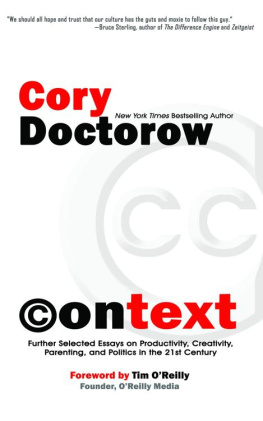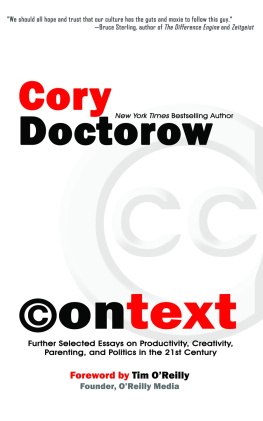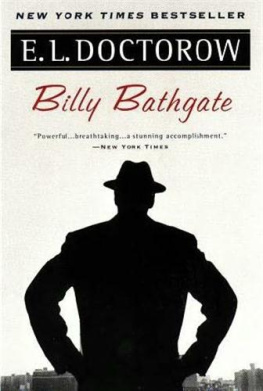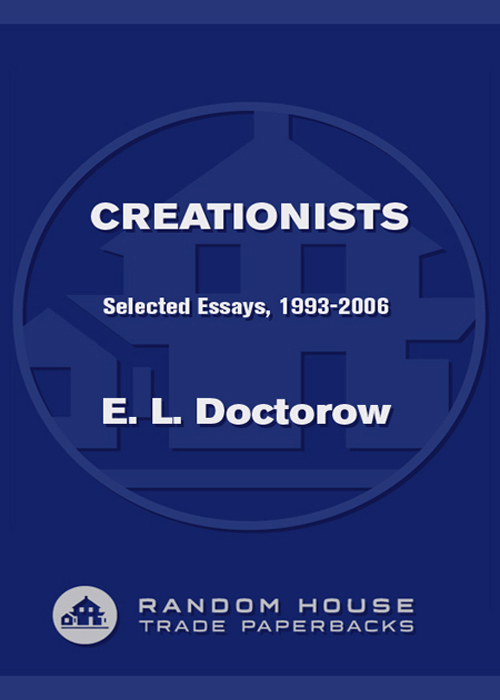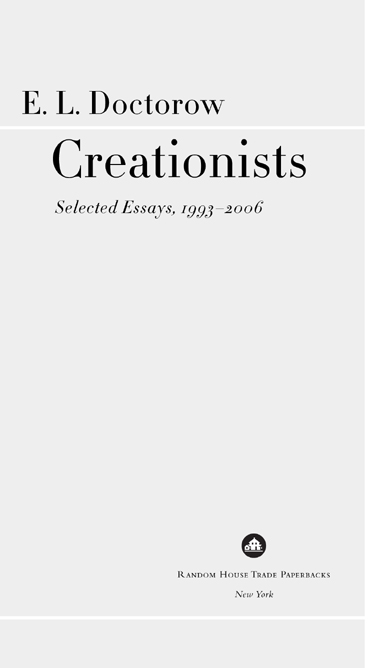Introduction
T HIS GATHERING OF ESSAYS is a modest celebration of the creative act. It acknowledges composition as the reigning enterprise of the human mind; it affirms that we know by what we create. I attend here mostly to compositions that take the form of stories. I write such compositions myself, and so am interested in those who write them.
A novel or a play has its origins in the peculiar excitements of the writers mind. These are powerfully felt, even inspired, responses to what may be the faintest or most fleeting of stimuli an image, the sound of a voice, a kind of light, a word or phrase, a bar of music. Or there may be an idea for which the writer has a strong sense of recognition, so strong that it becomes his to deal with as his domain.
Of course, not allin fact very fewof the writers states of arousal are resolved as finished works. Most are put aside for some mercurial reason: they are tried and found wanting in a page or so, or stashed away, or forgotten completely. But I imagine them as a kind of groundsong, these excitements, as constant and available as the sensation of life itself.
Wherever fiction begins, whether in the music of words or an impelling anger, in a historic event or the importunate hope of a justly rendered composition of ones own life, the work itself is hard and slow and the writers illumination becomes a taskmaster, a ruling discipline, jealously guarding the mind from all other and necessarily errant private excitements until the book is done, the script is finished. You live enslaved in the pieces language, its diction, its universe of imagery, and there is no way out except through the last sentence.
Underlying everythingthe evocative flashes, the dogged working of languageis the writers belief in the story as a system of knowledge. This belief is akin to the scientists faith in the scientific method as a way to truth.
Stories, whether written as novels or scripted as plays, are revelatory structures of facts. They connect the visible with the invisible, the present with the past. They propose life as something of moral consequence. They distribute the suffering so that it can be borne. To the skeptic who would not consider the story a reputable means of knowledge, the writer could point out that there was a time when there would have been nothing but stories, and no sharper distinction between what was fact and what was invented than between what was spoken and what was sung. Religion, science, simple urgent communication, and poetry were fused in the intense perception of a metaphor. Stories were the first repositories of human knowledge. They were as important to survival as a spear or a hoe. The storyteller practices the ancient way of knowing, the total discourse that antedates all the special vocabularies of modern intelligence.
There is a scientist in this book as well. Scientific formulas are revelatory structures of facts. They too connect the visible with the invisible. And, inevitably, they create realms of moral consequence. I argue here that the experience of discovering a scientific truth is for the scientist the same as the achievement of a realized work for the writer. In neither case is there a lingering sense of personal possession. The effort of ones mind seems, on completion, the work of outside forces. For all creationists, there is a strange displacement: the creative mind dissociates from what it has created. There is no memory of the effort involved. The book, the formula, becomes something out there, as if it appeared of its own volition.
I assume the experience is the same for the composer of music, the painter, the sculptor, the architect, the engineer. But the comedic mime, whose composition is in his physical deportment, whose revelations are composed as gestures, lives, like the dancer, in his expressive musculature, his art molded from his being.
Human creativity would seem to be rampant. From infancy the mind ascribes meaning to the unmeant; it lights what it sees and makes a home of the world. The results are not always benign. Our inventiveness is boundless and can be at its most dazzling as it breaches the moral imperatives we have created for ourselves. Like the communal composition out of Los Alamos, it can have horrifying consequences.
In the history of literature, some of the most beautiful, most profound works have been composed by the most wretched of souls; there is no necessary equivalence between the aesthetic and moral achievement of a novel and the confused, drunken, tormented, or immoral package of humanity who has produced it. Whatever sublimity inheres in the work does not necessarily exhibit itself in the author.


